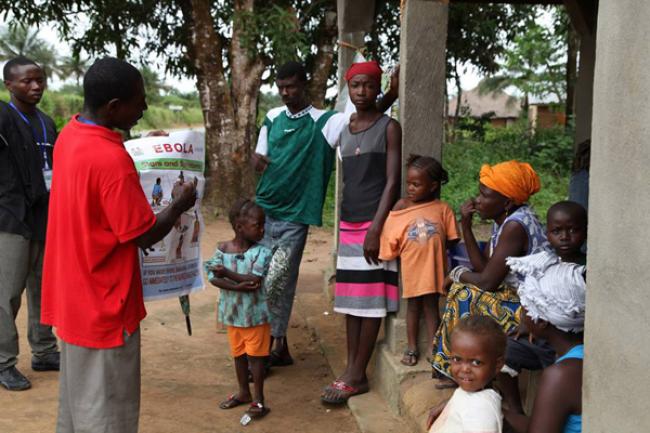24 Sep 2014

Experts from the United Nations World Health Organization (WHO) and Imperial College in London, made their findings known in a new article in the New England Journal of Medicinereleased on Tuesday , six months after the UN health agency was first notified of the outbreak in West Africa.
In the article, public health epidemiologists and statisticians reviewed data since the beginning of the outbreak in December 2013 to determine the scale of the epidemic, better understand the spread of the disease, and what it will take to reverse the trend of infections, according to a WHO press release.
The examination of the data also showed the spread more clearly.
In late December, the first cases were reported in the forest areas of Guinea. By March, when the government sounded the alarm to WHO, cases had already spread from the forest area to the capital of Conakry. In May, the focus of the outbreak in Guinea expanded strongly to Sierra Leone and in June it really took hold in Liberia. From July onward, there were sharp increases in case numbers in all three countries.
Although the current epidemic in West Africa is unprecedented in scale, the clinical course of infection and the transmissibility of the virus are similar to those in previous Ebola outbreaks.
“We infer that the present epidemic is exceptionally large, not primarily because of biologic characteristics of the virus, but in part because of the attributes of the affected populations, the condition of the health systems, and because control efforts have been insufficient to halt the spread of infection,” says Christopher Dye, Director of Strategy for WHO, and co-author of the study.
There are challenges in this region that exacerbate the struggles to contain the disease. Certain characteristics of the population may have led to the rapid spread of the disease, for example, the populations of hard hit Guinea, Liberia, and Sierra Leone are highly interconnected, with extensive cross-border traffic at the epicentre and relatively easy connections by road between rural towns and villages and the densely populated capital cities.
“Forward projections suggest that unless control measures – including improvements in contract tracing, adequate case isolation, increased quality of care and capacity for clinical management, greater community engagement, and support from international partners – improve quickly, these three countries will soon be reporting thousands of cases and deaths each week,” says Dye.
The WHO press release quoting from the Journal said more than 20,000 people will have been infected by early November unless Ebola control measures in West Africa are enhanced quickly.
In its latest Ebola update issued Monday, WHO said 5,843 cases and 2,803 deaths have been reported in the current outbreak by the Ministries of Health of Guinea, Liberia and Sierra Leone.
Experimental therapeutics and vaccines offer promise for the future, but are unlikely to be available in the quantities needed to make a substantial difference in control efforts for many months, even if they are proved to be safe and effective.
“This study provides the evidence needed for an urgent wakeup call requiring intensive scaling up of control measures while working towards rapid development and deployment of new medicines and vaccines,” WHO said.
A team of volunteers in Gbaneh Bana Village, Port Loko District, Sierra Leone, discussing Ebola prevention with a family. Photo: WHO/S. Gborie